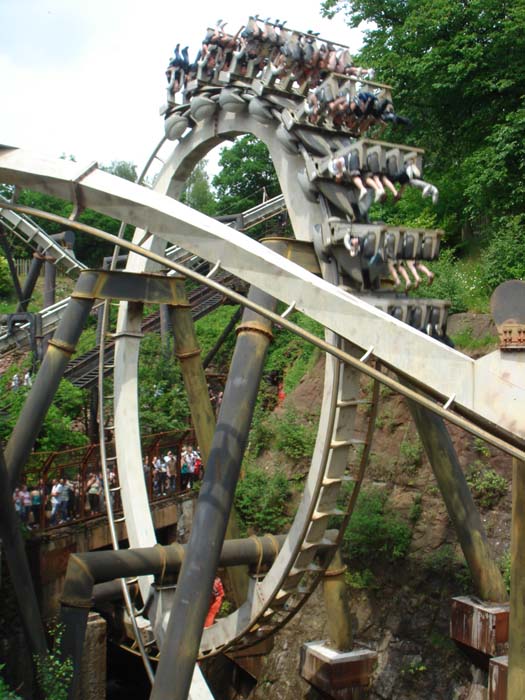A court case against theme park Alton Towers is to be appealed in the High Court following complaints by villagers in the neighbouring area of Farley. Stephen and Suzanne Roper, of Farley House, claim their lives have been affected by noise pollution from the park, and are seeking the closure of Alton Towers, along with backdated compensation from 1998 onwards.

The couple first launched court proceedings against site owners, the Tussauds Group, in 2002, in both the criminal and civil courts in an attempt to force the park to deal with ‘excessive noise’ emanating from the site on a daily basis. The Ropers took action via a civil courts claim in 2004, but due to a noise abatement order already in process in the Magistrates court, the case was deferred until 2008. Their request for the noise abatement order was granted, coming into effect in May 2007.
Following this, the Ropers felt that the park was failing to comply with the terms of the order and brought a criminal prosecution, yet due to a reorganisation of the Tussauds Group causing a transferral of company ownership this had to be dropped, as the named defendant was no longer responsible for the theme park.
This caused the Ropers to revive their civil claim, but the High Court judge found in favour of Alton Towers’ site owners, citing prejudice against the company because of the difficulty in providing evidence prior to 2004. Their claim for an injunction against the park and compensation was thrown out of court in January of this year.
However, a more senior member of the High Court has agreed to appeal the case, adjourning the matter to allow adequate time for the legal team representing Alton Towers to prepare for the case when it returns to the courts.
Mr Justice Hickinbottom says he allowed the case to return to court “with a heavy heart” due to the rising legal costs facing the Ropers should they lose their battle against the company. He says “The costs of this claim are very considerable. By adjourning today’s appeal, those costs can only be increased. Richard Buxton, solicitor for the claimants, has indicated that if this appeal is unsuccessful there will be grave financial difficulties for the claimants.”
The Ropers claim that the judge’s decision in January was “Draconian and disproportionate”, arguing that the injunction claim could have been allowed to continue even if the compensation aspect of the case was dropped.
Mr Buxton said “The ultimate aim of this case is for Alton Towers to comply with their original planning permission, that noise was not to be heard outside the park, and to take care of their neighbours, which it presently is not.
“It has made life a misery both for my clients and also, to our knowledge, many others in Farley and Alton. We would like Alton Towers to be a good neighbour.”
In a statement released by a spokesperson for the park, it says “Alton Towers Resort was of course pleased that the court took the common sense approach in January 2011 when it refused to allow the ongoing civil complaint by Mr and Mrs Roper to be resurrected after years of delay. As far as we were concerned this decision, combined with the earlier confirmation that the noise abatement order originally sought by Mr and Mrs Roper no longer applied to the Resort, drew a line under the matter.”
It continues “As we have maintained, we continue to take our responsibilities towards our neighbours very seriously, and have voluntarily sought to operate well within strict noise guidelines. We believe that this underlines our ongoing goodwill and commitment to improving every part of our operation in line with both our visitor and community needs.”
Should the Ropers be successful in their appeal and following court proceedings, all of Alton Towers Resort will be affected, including the various commercial properties on site. The hotels, which now allow early access to the rides that the park has to offer, would no longer have this benefit on offer, as noise control issues would prevent the park from running before 9am, or possibly even later depending on legislation passed. This could cause visitors to the park to choose a more economical option such as travelling to the park for the day or staying in a local, and cheaper, establishment. Bars and restaurants could also be affected by more limited trading hours and a lack of clientele due to less customers staying in the hotels.
Also, as pointed out by the Resort itself, Alton Towers helps the economy of the surrounding area, including the business Mr Roper himself owns. Without the popularity of the theme park there is a danger the area would be passed over completely, causing considerable damage to small businesses. It seems, then, that the courts have to make the decision between the peace of mind of local residents and the continuing welfare of the business community of the North West.
Previous Post
Grim Economic Predictions For 2012